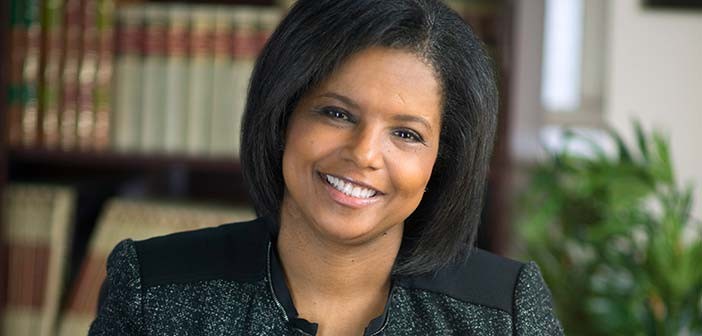Looking beyond the hard science of climate change, Mayor Bill de Blasio has appointed a Fordham Law School professor and environmental justice scholar to help New York City shape its plans for climate change adaptation taking into account inequality at the neighborhood scale.
Sheila R. Foster, the Albert A. Walsh Professor of Real Estate, Land Use and Property Law at Fordham Law, joined the mayor’s third New York City Panel on Climate Change (NPCC3). The panel, which is independent of the city government, uses the best available data to inform the city’s comprehensive climate policies, including a multilayered, citywide resiliency plan and sweeping sustainability initiative.
“Science, naturally, drives city planning for climate change, but, in places like New York City, local officials must also think about how their plans and policies affect socially vulnerable and marginalized people,” said Foster, the author of numerous publications that examine the intersection of civil rights and environmental law in an emerging field known as environmental justice.
“Environmental pollution exposure, for example, tends to disproportionately affect low-income and ethnic minority communities, so it is no surprise that the impacts of climate change will also fall unevenly on different communities. We need to look at government planning and policy solutions that ensure no community suffers unnecessarily from environmental harms and that the benefits of environmental policies are spread fairly throughout society.”
As a member of de Blasio’s third task force, Foster faces one of the most challenging issues of our day, made more demanding through the focus on identifying ways to address climate risk mitigation and adaptation across the entire New York City region. The third report, due in 2016, has five key objectives, which include the evaluation of the ways to best achieve climate resiliency, the development of monitoring systems for New York’s critical infrastructure during weather events, and the creation of mapping products to better pinpoint climate risk and uncertainty.
“NPCC3 will build on a strong foundation, ensuring that—as we adapt to climate risks—we are doing so in a way that serves all New Yorkers” Mayor de Blasio said in a statement announcing the new panel.
Foster’s academic and legal career puts her in a strong position to help the mayor. In addition to working with state and federal agencies to craft policies designed to ameliorate the pattern of disproportionate placement of polluting facilities in low-income neighborhoods, she co-authored two of the major texts on environmental justice, “From the Ground Up: Environmental Racism and the Rise of the Environmental Justice Movement” and “The Law of Environmental Justice: Theories and Procedures to Address Disproportionate Risks.”
“It’s a challenge to address these problems on a policy and a practical level,” Foster said. “It takes creative thinking—for example, combining civil rights concepts such as disparate impact with environmental risk assessment—to solve the problems at hand.”




